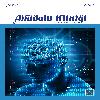Mental Retardasyonu Olan Yetişkinlerin Ailelerinde Bakim Yükü ve İlişkili Faktörler
zihinsel yetersizlik, ; aile, bakım veren, bakım yükü, erişkin, yetişkin
Family Caregiving Burden of Adults with Intellectual Disability and Associated Factors
intellectual disability, ; family, caregiver, caregiving burden, adult,
___
- 1. Sadock BJ, Sadock VA, Ruiz P. Kaplan and Sadock’s Synopsis of Psychiatry: Behavioural Sciences / Clinical Psychiatry.11th ed. International ed. Wolters Kluwer;2015. p. 1118-1120
- 2. Maulik PK, Mascarenhas MN, Mathers CD, Dua T, Saxena S. Prevalence of intellectual disability: a meta-analysis of population-based studies. Res Dev Disabil. 2011;32(2):419-36.
- 3. The ICD-10 classification of mental and behavioural disorders: clinical descriptions and diagnostic guidelines:World Health Organization. Geneva;1992.p.176-180
- 4. Zarit SH, Reever KE, Bach-Peterson J. Relatives of the impaired elderly: correlates of feelings of burden. Gerontologist. 1980;20(6):649-55.
- 5. Williamson HJ, Perkins EA. Family caregivers of adults with intellectual and developmental disabilities: Outcomes associated with US services and supports. Ment Retard. 2014;52(2):147-59.
- 6. Coppus A. People with intellectual disability: What do we know about adulthood and life expectancy? Dev Disabil Res Rev. 2013;18(1):6-16.
- 7. Robinson S, Weiss JA, Lunsky Y, Ouellette‐Kuntz H. Informal support and burden among parents of adults with intellectual and/or developmental disabilities. J Appl Res Intellect. 2016;29(4):356-65
- 8. Al-Krenawi A, Graham JR, Al Gharaibeh F. The impact of intellectual disability, caregiver burden, family functioning, marital quality, and sense of coherence. Disability Soc. 2011;26(2):139-50.
- 9. Cangür Ş, Civan G, Çoban S, Mazhar K, Karakoç H, Budak S, et al. Düzce ilinde bedensel ve/veya zihinsel engelli bireylere sahip ailelerin toplumsal yaşama katılımlarının karşılaştırmalı olarak değerlendirilmesi. Düzce Üniversitesi Sağlık Bilimleri Enstitüsü Dergisi. 2013;3(3):1-9.
- 10. Sivrikaya T, Tekinarslan İÇ. Zihinsel yetersizliği olan çocuğa sahip annelerde stres, sosyal destek ve aile yükü. Ankara Üniversitesi Eğitim Bilimleri Fakültesi Özel Eğitim Dergisi. 2013;14(02):017-29.
- 11. Hanzawa S, Tanaka G, Inadomi H, Urata M, Ohta Y. Burden and coping strategies in mothers of patients with schizophrenia in Japan. Psychiat Clin Neuros 2008;62(3):256-63.
- 12. Özlü A, Yıldız M, Aker T. Zarit bakıcı yük ölçeğinin şizofreni hasta yakınlarında geçerlilik ve güvenilirlik çalışması.Noropsikiyatri Ars2009; 46:38-42.
- 13. Moss S, Prosser H, Costello H, Simpson N, Patel P, Rowe S, et al. Reliability and validity of the PAS‐ADD Checklist for detecting psychiatric disorders in adults with intellectual disability. J Intell Disabil Res. 1998;42(2):173-83.
- 14. Moss S. The PAS-ADD checklist (revised). Brighton, UK: Pavilion Publishing. 2002.
- 15. Görmez A, Kırpınar İ. The psychiatric assessment schedule for adults with developmental disability checklist: reliability and validity of Turkish version. Psychiatry and Clinical Psychopharmacology. 2017:1-10.
- 16. Pazvantoğlu O, Sarısoy G, Böke Ö, Aker AA, Özturan DD, Ünverdi E. Şizofrenide bakım veren yükünün boyutları: Hastaların işlevselliğinin rolü. Düşünen Adam The Journal of Psychiatry and Neurological Sciences. 2014;27:53-60.
- 17. Karahan, A, İslam, S. Fiziksel engelli çocuk ve yaşlı hastalara bakım verme yükü üzerine bir Karşılaştırma çalışması. MÜSBED. 2013;3(Suppl. 1): S1-S7
- 18. Blacher J, Kraemer B, Howell E. Family expectations and transition experiences for young adults with severe disabilities: does syndrome matter? Adv Ment Health Intellect Disabil. 2010;4(1):3-16.
- 19. Vohra R, Madhavan S, Sambamoorthi U, St Peter C. Access to services, quality of care, and family impact for children with autism, other developmental disabilities, and other mental health conditions. Autism. 2014;18(7):815-26.
- 20. Maes B, Broekman T, Došen A, Nauts J. Caregiving burden of families looking after persons with intellectual disability and behavioural or psychiatric problems. J Intell Disabil Res. 2003;47(6):447-55.
- 21. Irazábal M, Marsà F, García M, Gutiérrez-Recacha P, Martorell A, Salvador-Carulla L, et al. Family burden related to clinical and functional variables of people with intellectual disability with and without a mental disorder. Res Dev Disabil. 2012;33(3):796-803.
- 22. Allen D, Lowe K, Matthews H, Anness V. Screening for psychiatric disorders in a total population of adults with intellectual disability and challenging behaviour using the PAS‐ADD checklist. J Appl Res Intellect. 2012;25(4):342-9.
- 23. Buckles J, Luckasson R, Keefe E. A systematic review of the prevalence of psychiatric disorders in adults with intellectual disability, 2003–2010. J Ment Health Res Intellect Disabil. 2013;6(3):181-207.
- 24. Pinquart M, Sörensen S. Gender differences in caregiver stressors, social resources, and health: An updated meta-analysis. The Journals of Gerontology Series B: Psychological Sciences and Social Sciences. 2006;61(1):P33-P45.
- 25. Heller T, Hsieh K, Rowitz L. Maternal and paternal caregiving of persons with mental retardation across the lifespan. Fam Relat. 1997:407-15.
- 26. Chou Y-C, Fu L-y, Lin L-C, Lee Y-C. Predictors of subjective and objective caregiving burden in older female caregivers of adults with intellectual disabilities. International psychogeriatrics. 2011;23(4):562-72.
- ISSN: 2149-5254
- Yayın Aralığı: Yılda 3 Sayı
- Başlangıç: 1933
- Yayıncı: Hayat Sağlık ve Sosyal Hizmetler Vakfı
Ayşe OCAK DURAN, İbrahim İLERİ, Mevlüde İNANÇ, Oktay BOZKURT, Ersin ÖZASLAN, Mahmut UÇAR, Metin ÖZKAN
Mental Retardasyonu Olan Yetişkinlerin Ailelerinde Bakim Yükü ve İlişkili Faktörler
Hayatı Tehdit Eden Hiperkalsemi ile Başvuran Hipoparatiroidi Olgusu
Hüseyin KARAASLAN, Mehmet Nuri TURAN, Mehmet Ali EREN, Tevfik SABUNCU
Ahmet ELBAY, Alper YENİGÜN, Hakan ÖZDEMİR, Ömer Faruk ÇALIM, Cansu EKİNCİ, Rukiye ÇETİNKAYA
İnsidental Olarak Saptanan Bochdalek Hernilerinin ÇKBT ile Değerlendirilmesi:
Filiz Fusun Bolukbas, Seyda İgnak, Ozlem Unay Demirel, Yavuz Furuncuoglu, Ferhan Mantar, Sercen Cansu Sertel, Filiz Yarimcan Saglam, Cengiz Bolukbas
Seckel Sendromlu Olguda C-Mac Videolaringoskop ile Nazotrakeal Entübasyon
Ahmet Selim ÖZKAN, Sedat AKBAŞ, Mehmet Rıdvan YALIN, Emine ÖZDEMİR
Nuriye ÖZENGİN, Hatice ÇANKAYA, Yeşim BAKAR, Mehmet Ata TOPÇUOĞLU, Handan ANKARALI
Hastanede uzun süreli yatan hastalarda Clostridium difficile kolonizasyonunun araştırılması
Şükrü ÖKSÜZ, Ayşe DANIŞ, Elif ÖZTÜRK, Emel ÇALIŞKAN, Nida KILIÇ AKAR, Mehmet Ali SUNGUR
